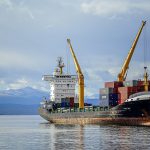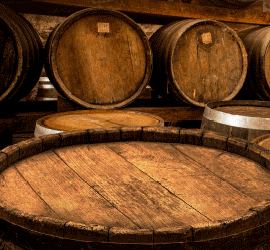RaboResearch general manager for Australia and New Zealand Stefan Vogel. Image courtesy Rabobank
Cost increases will be felt by Australian producers in 2022, driven by expected further hikes in energy and, to some degree, fertiliser prices as a result of the Russia-Ukraine war, Rabobank said in a newly-released report.
In the report, The Russia-Ukraine War’s Impact on Food and Agri: What Oceania’s Food & Agri Chain has to Plan For, the agribusiness banking specialist says disruptions to trade flows from the two major agricultural powerhouses of Russia and Ukraine have had a major direct impact on global markets and will continue to keep global prices elevated throughout 2022 “and likely beyond”.
But it is the war’s impact on the key agricultural inputs of fuel and fertiliser – sending prices of both skyrocketing – which will cut into margins in a range of sectors.
The report says the bank’s analysis shows while the European Union’s latest sanction plans – which entail a move to ban Russian oil imports by late 2022 – will have a relatively small impact on grain and also fertiliser prices, there will be significant increases for energy prices, which are already very high, as a consequence.
Energy prices – both oil and gas – will rise further, and farmers and the food supply chain will have to prepare for continued high and volatile prices, said report author, RaboResearch general manager for Australia and New Zealand Stefan Vogel.
“For the Australian food and agri sector, the implications of the planned next round of EU sanctions on Russia are therefore more negative than positive as prices of farming outputs like grains are expected to move substantially less upward than those of input costs like energy and, to some degree, fertiliser,” he said.
“Farmers and the food supply chain will have to plan for elevated input costs, not only for fertilisers, but also because of strong energy prices.”
Global fertiliser prices reached all-time highs in early April, the report said – and not just due to the elevated grain prices, but also because Russia and Belarus are major exporters of various fertiliser types.
“Fertiliser prices elevate with grain prices and the current high price period is not an exception,” Vogel said.
“And while Australia does not typically import much of its fertiliser needs from the Black Sea region, we are importing most of our needs from the world market and therefore we will still face a tough fertiliser market in the coming months.
“Australia may face some temporary shortages for certain products as key import competitors like Brazil and India will also try to secure their needs in the global market.
“Given Australia’s import dependence for fertiliser, our fertiliser chain is more vulnerable than usual.”
There is also no relief expected ‘at the bowser’ any time soon, with the bank saying energy prices face a further big price “upside” due to the EU’s plan to ban Russian oil imports by late 2022.
“As Australia is a net importer of crude oil, the global energy price volatility will be felt by consumers here,” Vogel said.
“Crude oil and diesel price increases due to the war will add to costs in farming and the supply chain.
“While crude oil prices above U$100 dollars a barrel already feel expensive, a further price increase of more than 50 per cent is possible as a result of those planned EU sanctions, if they come to pass.”
The already COVID-stressed global freight logistics system also faces more pressure from the war, the Rabobank report said.
“Shipping costs will continue to feel the impact of rising energy prices. And especially container freight, not only because of the war but also due to continued COVID-related disruptions like lockdowns, especially in China, and continued labour shortages.”
The report stated container freight prices remain significantly elevated due to the ongoing impacts of COVID; “it will likely take two or more years to unwind congestion around the world and for freight rates to move back down closer to historic levels”.
“Russia’s war in Ukraine though has so far not added much to fuel the fire of container freight costs as the region is a rather small shipper of containerised goods,” Vogel said.
Are you a Daily Wine News subscriber? If not, click here to join our mailing list. It’s free!





















